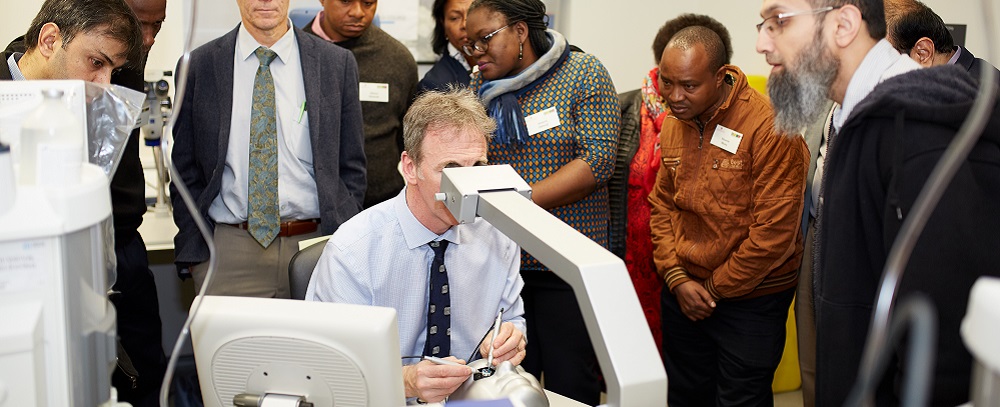Out of Programme (OOP) is time out to develop skills and experience beyond an approved training programme. You can apply to have some of your OOP (either Training or Research) count toward your Certificate of Completion of Training (CCT).
Trainees wishing to have OOPT/R time counted towards their CCT must complete a College application form. This only applies to OOPT in locations not recognised by the GMC as training locations or OOPR in the UK or abroad.
Out of Programme Training/Research (OOPT/R)
Your Postgraduate Dean must approve the OOP before getting approval from the GMC. An endorsement letter by the College is only required if you wish for some of the OOP time to count towards your CCT.
GMC approval must be sought prospectively – please follow the link Out of Programme – GMC guidance for details.
It is important to submit applications for recognition in good time. Failing that, the College cannot guarantee that approval will be granted in time for the start date. The College cannot offer retrospective approval.
Trainees wishing to have OOPT/R time counted towards their CCT must complete a College application form.
How to apply for OOPT
1. Download the OOPT Application Form
2. Complete the application form, ensuring all parts of the form are complete. Incomplete applications will be returned.
3. Submit the completed form by email to [email protected]
How to apply for OOPR
- Download the OOPR Application Form
- Complete the application form, ensuring all parts of the form are complete. Incomplete applications will be returned.
- Submit completed form and documents by email to [email protected]
The application to the Training Committee for recognition of a research period towards the CCT must be accompanied by a research protocol and a timetable.
The maximum time that can be recognised towards CCT arising from a period of research is 6 months.
Reports
A report must be completed and submitted to the College at the end of OOPT/R periods.
Out of Programme Experience / Career break (OOPE/C)
Please inform the College if your Postgraduate Dean has approved an OOPE or OOPC. The College will update your e-Portfolio and change the expected CCT date.
Trainee Selected Components (TSCs)
Since September 2020, new TSCs do not require College approval. Heads of School and Training Programme Directors (TPDs) will make approval decisions locally if they feel that proposed objectives are achievable and timetables show that doctors in training will receive sufficient exposure in theatre. It is suggested to use the TSC Prospectus Form to apply locally. Please read the full guidance here.
TSCs which have been previously given continuous recognition are listed here for reference.
Acting Up as Consultant (AUC) – conditions
- The trainee must be in their final year of training (pro-rata for LTFT trainees), on an ARCP Outcome 1 and have passed the Part 2 FRCOphth examination
- The maximum duration for AUC is 3 months
- The trainee must remain with their named Educational Supervisor whilst acting up as a consultant so that the period is covered by them in respect of an Educational Supervisor Report (ESR)
- There must be a named Clinical Supervisor in the same unit to whom the trainee can turn for advice and assistance and who can provide a Clinical Supervisor Report (CSR)
- The post must be with an already GMC-approved Local Education Provider
- Posts should preferably be within the trainee’s NHS England/Deanery training programme. If an AUC is undertaken outside the NHS England/Deanery, then the latter’s permission for an OOPT is required
- Additional College approval is not required if the AUC is within the trainee’s NHS England/Deanery training programme
- The post must be termed ‘acting up’, and on no account must the term ‘locum’ be used
- The trainee will retain their National Training Number (NTN) during the period of acting up
- Doctors who are post-CCT will not be eligible to ‘act up’ and will be expected to take up the post of locum consultant – they will be asked to resign their NTN upon taking a locum consultant post
- The College will not support AUC posts in units where there are fewer than 2 consultant colleagues
- GMC position on AUC

